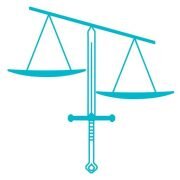Best Dependent Visa Lawyers in Lille
Share your needs with us, get contacted by law firms.
Free. Takes 2 min.
List of the best lawyers in Lille, France
About Dependent Visa Law in Lille, France
The Dependent Visa, often referred to as Visa de Long Séjour (VLS), is a legal document that allows family members of a non-European Union (EU) resident living in France to join them in the country. This visa is necessary for spouses, children, and sometimes other dependents to legally reside in France for an extended period. In Lille, just as in the rest of France, the process corresponds with national immigration regulations but may have local administrative nuances due to specific regional practices.
Why You May Need a Lawyer
Acquiring a Dependent Visa can be a complex process involving numerous forms, documents, and procedural steps. Legal assistance may be crucial in several situations, such as:
- Understanding intricate immigration laws and ensuring compliance
- Dealing with complicated application scenarios or past visa denials
- Handling appeals for rejected visa applications
- Completing application documentation accurately and thoroughly
- Navigating language barriers during communication with French administrative bodies
Local Laws Overview
In Lille, as throughout France, Dependent Visa applicants must demonstrate that they are family members of someone legally residing in France, often requiring proof of relationship and financial capacity to support dependents. Key aspects include:
- Proof of residence by the sponsoring family member in France
- Proof of relationship such as marriage or birth certificates
- Evidence of sufficient income by the sponsor to support dependents
- Adherence to local administrative procedures including mandatory appointments and document verifications
Frequently Asked Questions
What is a Dependent Visa?
A Dependent Visa allows family members of a non-EU resident in France to live with the principal visa holder.
Who is eligible for a Dependent Visa?
Generally, immediate family members such as spouses and children of the sponsoring resident.
How long does the Dependent Visa process take?
The processing time can vary, but applicants should expect several weeks to months, depending on documentation and administrative schedules.
What documents are required for a Dependent Visa application?
Necessary documents typically include proof of relationship, sponsor’s financial means, sponsor’s residency permit, and valid passports for all applicants.
Where can I apply for a Dependent Visa?
Applications are typically lodged at the French consulate or embassy in the applicant's home country.
Can I work in France with a Dependent Visa?
Work permissions depend on the type of dependent visa issued and the residency status of the sponsoring family member. It is advised to check specific conditions tied to the visa.
What should I do if my Dependent Visa application is rejected?
In the event of a refusal, understanding the reasons is crucial. You may need to seek legal counsel to appeal the decision or address the rejection grounds.
Is health insurance mandatory for Dependent Visa holders?
Yes, having health insurance that covers the period of stay in France is a mandatory requirement.
Can the Dependent Visa be renewed?
Yes, renewals are possible and must be applied for well in advance of the current visa's expiration.
How can I prove my financial capacity to support my dependents?
Typically through bank statements, employment contracts, and pay slips indicating sufficient and stable income.
Additional Resources
Individuals seeking assistance with Dependent Visa applications can refer to the following resources:
- The French Office for Immigration and Integration (OFII)
- The local Préfecture in Lille
- Consulates or Embassies of France in the applicant’s home country
- French legal aid services or immigration lawyers specializing in visa cases
Next Steps
If you require legal assistance with a Dependent Visa in Lille, consider the following steps:
- Consult a lawyer specializing in immigration and visa laws early in the process.
- Gather all required documents and information to facilitate guidance from legal counsel.
- Reach out to local immigration services or lawyers for advice on your specific case.
- Attend any requested meetings or interviews at French consulates or government offices.
- Stay informed about any changes to local or national immigration laws that may affect your application.
Lawzana helps you find the best lawyers and law firms in Lille through a curated and pre-screened list of qualified legal professionals. Our platform offers rankings and detailed profiles of attorneys and law firms, allowing you to compare based on practice areas, including Dependent Visa, experience, and client feedback.
Each profile includes a description of the firm's areas of practice, client reviews, team members and partners, year of establishment, spoken languages, office locations, contact information, social media presence, and any published articles or resources. Most firms on our platform speak English and are experienced in both local and international legal matters.
Get a quote from top-rated law firms in Lille, France — quickly, securely, and without unnecessary hassle.
Disclaimer:
The information provided on this page is for general informational purposes only and does not constitute legal advice. While we strive to ensure the accuracy and relevance of the content, legal information may change over time, and interpretations of the law can vary. You should always consult with a qualified legal professional for advice specific to your situation.
We disclaim all liability for actions taken or not taken based on the content of this page. If you believe any information is incorrect or outdated, please contact us, and we will review and update it where appropriate.








